Parents who adopt out of Michigan child welfare need more services
Kim and her husband, a stay-at-home mom and electrical engineer who live in a pretty lakeside house in mid-Michigan, were raising teenagers when they got the call about a little boy who needed a home. He was just a toddler but was acting out the domestic violence he’d witnessed on his baby sister, and his foster parents didn’t want to keep the pair together. The couple had 24 hours to decide whether they could help.
Kim prayed and read her Bible for guidance. She had a big heart — had always loved being a mother, and her older kids were just amazing. How much harder could it be to take a 2-year-old home?
“We were naive,” she said.
Early childhood trauma, adverse childhood experiences and prenatal exposure to drugs, including alcohol, can cause psychological, biological and social problems that can last into adulthood and require interventions — time-consuming and expensive ones at that.
Up to 80% of children in foster care suffer from some type of mental health condition, compared with about 22% of other kids.
But many adoptive parents set out to complete their families or help a child in their community without a clear picture of the challenges that lie ahead for them. When they realize they need help, it’s sometimes too late, or they can't find any assistance.
The Free Press spoke with about a dozen parents who had adopted children out of the child welfare system over the last 15 years. Their children had varying degrees of special needs and a laundry list of mental health diagnoses and developmental delays.
Most felt unprepared, didn’t get the services or support they felt they needed, and ended up finding help on their own.
“The behaviors that the families are struggling with so severely are really related to the early traumas not being healed yet,” said Renee Orr, a clinical social worker and therapist in Grand Rapids who has spent most of her 25-year career in the child welfare system. “But once the kiddo is adopted into a family, the state sort of washes their hands and says, 'OK, the kid’s adopted now, case closed.' ”
“The services that they put in place are completely inappropriate and not scaled at what these kids truly need.”
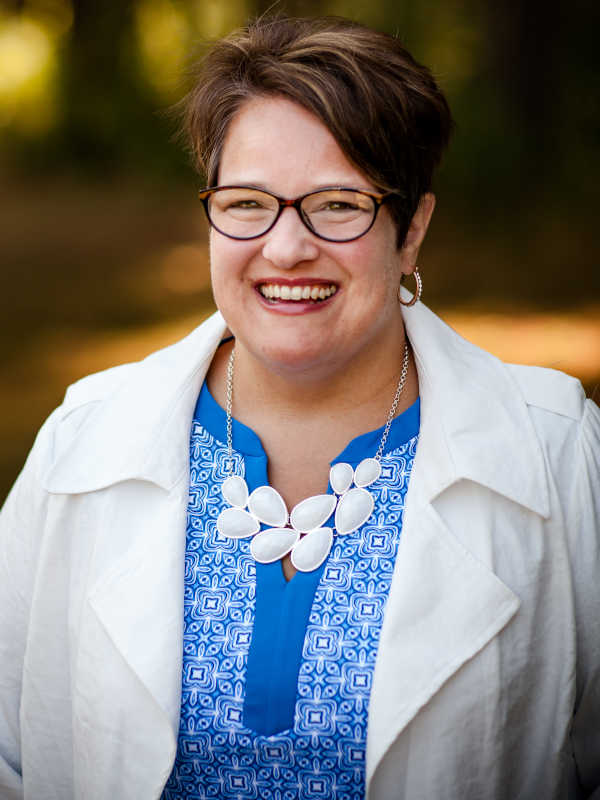
Adoptive parents need more support than they’re getting
The foster parent training Kim and her husband received left them believing that the little boy they agreed to foster had some baggage, but in a loving, secure, safe home, he was going to grow out of it.
That was not the case. Over the years, after the couple adopted both the little boy and his sister, their behavioral issues made living in the house like walking through a minefield. The Free Press is withholding the names of the children and the family’s last name to protect their privacy.
Both of the children had been physically and emotionally abused and probably had fetal alcohol syndrome disorders. The boy has PTSD, an anxiety disorder and reactive attachment disorder, which leaves conventional parenting techniques ineffective.
It fell completely on Kim and her husband to figure out how to get those diagnoses — which are prerequisites for getting services.
Though they qualified for respite care, there was no one to provide it.
Though her children received therapy, the providers seemed unaware of the kind of therapeutic approach to use with adopted children with trauma backgrounds. One called child protective services to the house during a session, causing both kids to panic that they were being taken away. Another told the couple their son’s behavior was the result of bad parenting. “Don’t let him run all over you,” she advised them. “Be consistent.”
And although eventually her son received the benefit of going to a residential treatment program, he was allowed only a six-month stay. He was sent home when the time was up, and 10 days later, he tore up his school, threatened to kill himself and others, made an attempt at the responding officer’s gun and ended up in the emergency room. “And everything started all over again,” Kim said.
More: Michigan takes foster kids' federal benefit money and reimburses itself for their care
More: A federal law demands mental health care parity. Why don't kids in Michigan get it?
Michigan programs support adoptive families
The state offers three adoption assistance programs: a nonrecurring adoption support payment of up to $2,000, a monthly adoption assistance payment and an adoption medical subsidy. But pieces of each apply to certain eligible children and none of them are automatic.
The monthly adoption assistance payment is available for 95% of adoptable children and can be used for general expenses. Most parents get between $22.35 and $26.69 a day, though some have negotiated higher or lower amounts. About 20,000 children in Michigan currently receive these payments, according to Children’s Services Administration director Demetrius Starling.
Orr said some adoptive parents worry that some will consider them greedy for taking state money to put their kids into sports or music lessons or buy them clothes. But by Orr’s estimate, 95% of adoption subsidy money gets put toward therapy. “They need help and families can't afford it,” she said.
In addition to resources, the state provides support. The Adoptive Family Support Network was allocated $250,000 in state funding to operate a mentor program “to provide a listening ear, knowledgeable guidance and community connections to adoptive parents.”
Starling said the state’s 12 Family Resource Centers were available for any parent in need of assistance, including adoptive parents trying to access mental health or other services for their kids.
Post-Adoption Resource Centers, which opened in 2012, hold regular support groups and can help find adoption-informed therapists and other resources such as respite care, trauma assessments, summer camp subsidies and more. They can also offer case management services when families need extra help.
“If you compare it nationally, the fact that we do have post-adopt(ion) resource centers and money allocated and consistent contracts for that … is something that speaks to the desire to support families,” said Melissa Jenovai, president and CEO of Spaulding for Children, a not-for-profit child welfare agency in Southfield.
Support isn't reaching everyone who needs it
Those who reach out to a PARC, eight of which are spread across Michigan and administered by four different agencies, have varying degrees of success in getting help. Some have expressed publicly how useful these centers are. Others have given up trying to reach out to them for help.
“I feel like there's a lot of marketing that doesn't have a whole lot of actual support behind it.” said Ben Kraker, who adopted an 8-year-old daughter out of Michigan’s child welfare system. “You think there's something out there … but then you get into it and you're like, that's a mile wide and an inch deep. Like, there's nothing really there.”
Then there’s Michigan’s Adoption Medical Subsidy Program, which reimburses families for costs associated with certain physical or behavioral health needs. To get this, parents must show that the child has an identified physical, mental or emotional condition that existed — or was caused by something that existed — before the adoption petition was filed.
“It's not mandated to exist and it is a program that Michigan offers that many other states do not have anything even close to,” said Lara Bouse, president and director of Fostering Forward Michigan. “It's a really impressive program. It's not perfect, it could be better, but we'll get there.”
Improvements haven’t come quickly enough for the Zimmermans in Osceola County, who’ve had to pay out of pocket for many of their adopted daughter’s health and developmental issues.
When they petitioned to adopt the little girl they’d been fostering since she was 3 days old, the state determined her needs weren’t great enough to qualify for the adoption subsidy; kids under the age of 3 don’t automatically get it, nor do they receive Medicaid coverage.
The Zimmermans were concerned about what that would mean for them financially if it turned out their daughter needed a higher level of support. Maybe they should wait to officially adopt her until her third birthday?
But Amanda Zimmerman said foster care workers encouraged her to proceed with adoption right away; establishing permanency quickly is a goal for children in care. Plus, caseworkers told her, she could always reapply later for adoption assistance once her daughter had official diagnoses.
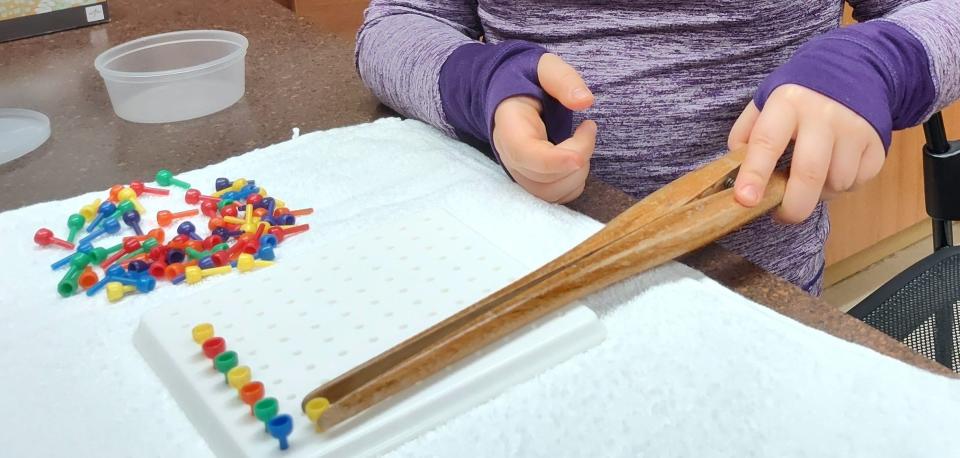
Their daughter was developmentally delayed, as they expected. But the Zimmermans didn’t anticipate how early childhood trauma would continue to shape her thoughts, her behavior and her actions.
Now 8 years old, she poops in her pants and doesn’t tell anyone, doesn’t play well with other kids, becomes physically aggressive and screams and cries for up to two hours when her parents tell her "no." Her brain continues to tell her the world is not a safe place and her needs will not be met.
She was diagnosed with a host of issues including PTSD and an expressive communication disorder. Since she can’t handle going more than one place each day, the family can’t go new places, or camping, or on vacations.
They can’t really afford those things anyway, Zimmerman said. She had to quit her well-paying job to have the time to attend to all her daughter’s needs and took a part-time job at the local library instead. The family spent years paying out of pocket for all their daughter’s appointments.
A severe emotional disturbance waiver afforded a limited-time access to Medicaid and eligibility to programs such as art and music therapy. But there were no providers in the area to deliver them, and Zimmerman said community mental health workers were not trauma-informed and didn’t offer therapies that aligned with her daughter’s needs.
Medicaid did help pay for things she benefits from: occupational, feeding and speech therapies. Now, community mental health has informed Zimmerman it’s unlikely her daughter’s enrollment will be renewed.
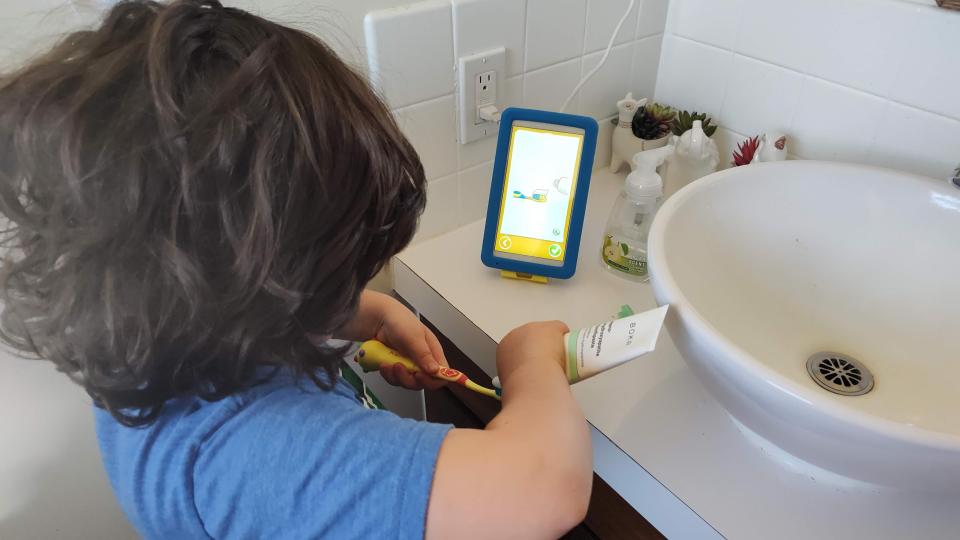
When Zimmerman looked into reapplying for the adoption subsidy to get more of her daughter’s needs covered, she discovered that the state’s Redetermined Adoption Assistance program has never been funded by the state budget office.
Her adoption worker, the person who served as her daughter’s guardian ad litem, said, “everyone I've spoken with is shocked it hasn't been funded and can't be applied for,” Zimmerman said. “The staff continues to think it's available for people, and it's not.”
Starling said he was not aware of the funding issue when it came to the redetermination program.
As their daughter’s ninth birthday approaches, the Zimmermans continue to hit walls in getting her therapies subsidized. “It's mind-blowing to me the things that we were told would be covered post-adoption and continue to be denied,” she said.
More: Staffers at Grayling juvenile justice center suffer bites, broken bones — and fear worse
More: Michigan is first state to ease kinship care rules, but most caregivers won't benefit
Could Michigan take a page from other states' playbooks?
Michigan’s adoption subsidy pays a higher rate than many states — and rates were increased in last year’s budget. Starling said these were “significant increases” that brought Michigan’s subsidy rates up from below average to a level that provides “substantial” support to adoptive families who need the assistance.
Michigan provides vastly more support than the handful of states that told the national AdoptUSkids project that they offer “no special services” as part of a publicly funded post-adoption program.
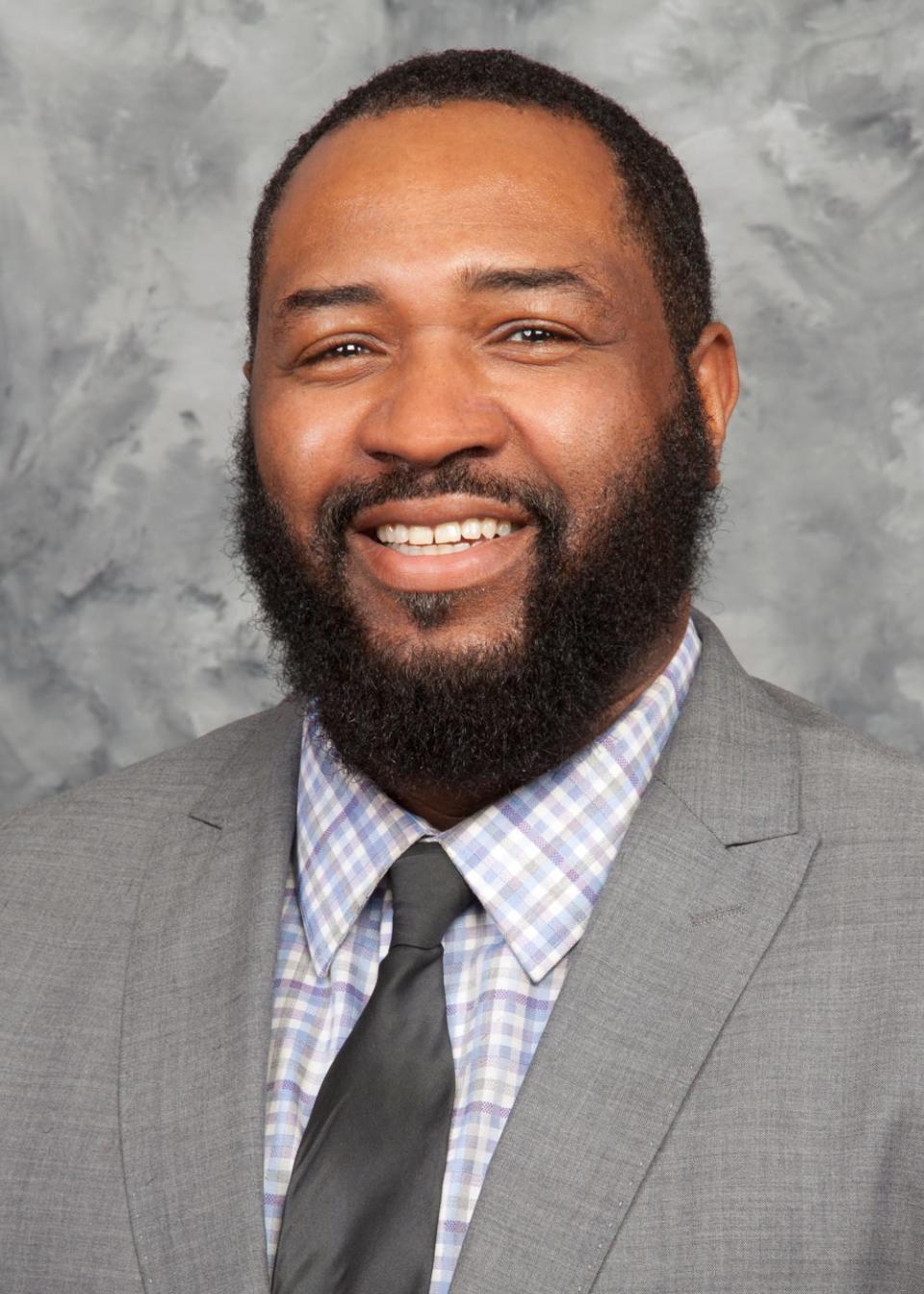
But some states provide a menu of additional services and support that Michigan does not.
In Tennessee, adoptive families receive trauma-informed assessment and in-home family-focused counseling at no cost, as well as ongoing case management. Experienced adoptive parents serve as staff for statewide community social events where families who adopted out of the child welfare system find connection and support.
Besides automatic Medicaid enrollment for children adopted from state care, Illinois offers child mental health services and advocacy, youth and adult support groups and “trauma-informed, attachment-focused, resiliency-building, therapeutic services,” according to a guide to post adoption services. “Testimonials from families who have used support services reveal that these services worked, while other traditional, less intensive services they had tried, did not,” the text reads.
Some states offer child care, access to specialized advocates to help navigate school systems, or help forging relationships with birth parents.
In Delaware, the support model is built on “intensive preparation and then really good, intensive, neverending support,” according to Meg Garey, executive director of A Better Chance for Our Children, which provides post-permanency services for the state.
There, every family receives case management services that could include going with parents to meetings at a child’s school, going to court with them or navigating relationships with birth families. They also get crisis support until a kid turns 18, training and support groups, parent coaching, sibling support and even a drop-off recreation program to give families a break.
Garey said post-permanency services are viewed as prevention — a way to make sure once a kid finds a home, it’s forever.
Parents need to ask for help
Free therapy for foster and adoptive parents is the top ask for Stacy Goodson, an adoptive mother of five who works in child welfare and has fostered more than 40 children over the last decade.
“I would 1 million percent love to see that, and I think we'd have a lot more successful placements if the parents have therapists themselves as well,” she said. “Because a lot of times kiddos and their stuff brings up stuff in ourselves. If we don't have a proper way to process it, then it can create double the challenges.”
Zimmerman said she’d like to see adoptive parents connected with more resources right away — not when they’re dealing with an emergency.
Orr said that by the time most families come to her for help, they’re in a crisis.
Some experts say parents here aren’t asking for help soon or often enough. Parents themselves admit they didn’t look for resources until their needs became urgent or unmanageable.
A lot of times, when families turn to Spaulding for Children for help with an adopted child’s behavior, they’re just at the end of their rope, according to its president and CEO Melissa Jenovai.
Things tend to spike about eight years after adoption, long after families have moved on from working with groups like PARC, and often around the time puberty kicks in and heightens every behavioral challenge. “Then you're so far removed from the system and you're in a crisis, of trying to figure out how to respond,” Jenovai said.
Bouse has noticed the same thing; when the adoption paperwork is signed and parents no longer must answer to the state or adoption agency, they sometimes back away from services that should probably stay in place.
Adoption agencies wouldn’t want to mandate parents sign up for support they don’t want or need, Bouse pointed out. “But we do desperately need to find a way to have adoptive parents feel safe in asking for help and not feeling so desperate that their only option is to give up on their child,” she said.
But other adoptive parents aren’t sure why the state or adoption agencies don’t make it easier to find what they need.
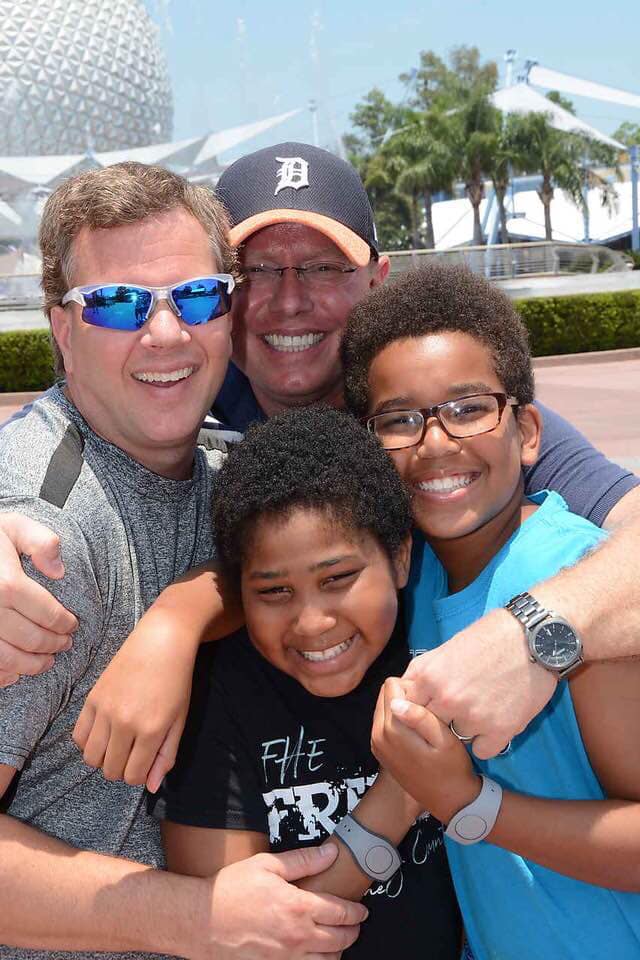
Brian and his husband, Jeff, whose last names are being withheld for security reasons, were so overwhelmed with one of their foster son’s violent and destructive behavior that they gave their 30-day notice that they could no longer keep him. Suddenly a wealth of support was made available, including a community mental health-funded parent support partner who met with the couple every other week and taught them a game-changing interventional model.
“It would have been nice to know what options we have,” said Brian, who eventually adopted the boy and a second one from a group home near Grand Rapids.
A very different life than they imagined
Kim and her husband are connected with their regional PARC, and the Adoption and Foster Support Network. But most helpful is probably the fact that a nearby adoptive mom has an open door and a full coffee pot every Wednesday night for whoever needs to come find support and trade stories.
Today, the couple’s lives look a lot different than what they expected when they answered that phone call to take in a little boy who needed a loving family.
Their adopted children are too volatile to take to activities or social events, so family events, church, gatherings with friends; these are things Kim and her husband don’t get to participate in anymore — at least not together.
When their grandbaby comes for a visit, two adults have to be in the room at all times, to make sure she’s safe. So no one gets a break, or special time with the little one or a chance to run to the grocery store.
Two summers ago, they managed to sneak off for a camping trip to a state park about an hour away — just the two of them. But that first night under the stars, Kim got a call that her adopted daughter was in the emergency room after she shoved a Lego into her ear.
When they got back, their daughter and son-in-law said they just didn’t think they could watch the kids again.
Kim’s home has large windows overlooking the nearby water where she’d hoped to spend lazy weekends boating with her husband and friends. Now, their closed-off little world feels very small.
They continue to fight for funding to get their son placed back into residential treatment. He says he wants to go, so he doesn’t hurt anyone.
A few months ago, they were one of 30 families to be awarded by the Michigan Adoption Resource Exchange. They got a $200 gift card to Great Wolf Lodge and a bundt cake. MARE also sent her a framed family photo — the one they featured on their Facebook page where the faces of children who need a home smile out at scrollers. It shows the family nestled together in the rough arms of a giant tree, somewhat smiling.
Kim doesn’t know whether she can bear to hang it up in the house. She feels like her family is falling apart.
“I find it ironic,” she said. “One state department giving us family accolades and one state department refusing to help keep our family together.”
Jennifer Brookland covers child welfare for the Detroit Free Press. This story was produced with support from The Dart Center for Journalism and Trauma at Columbia University.
This article originally appeared on Detroit Free Press: Parents who adopt out of Michigan child welfare need more services

